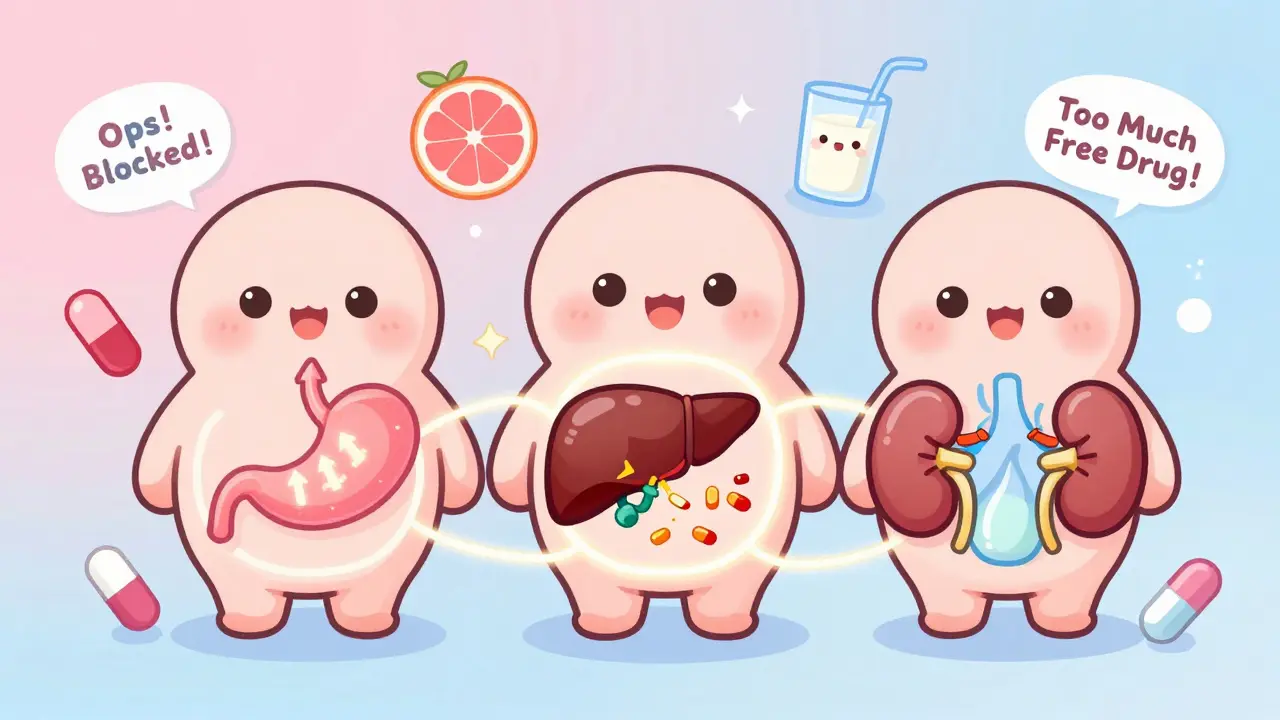Drug Interactions: What You Need to Know to Stay Safe
When you take more than one medication, your body doesn’t just see them as separate pills—it sees a drug interaction, a change in how one drug affects another when taken together. Also known as medication interaction, it’s not just about side effects—it’s about your body’s chemistry being thrown off balance, sometimes with life-threatening results. This isn’t rare. One in five adults takes five or more medications, and even over-the-counter painkillers or herbal supplements can clash with your prescriptions.
Take lithium, a mood stabilizer used for bipolar disorder. It’s fine on its own. But add a common NSAID like ibuprofen, and your lithium levels can spike by up to 60%. That’s not a small bump—it’s a jump into toxicity territory, risking kidney damage, tremors, or even seizures. Or consider antifungals, drugs like ketoconazole and voriconazole used for stubborn fungal infections. They’re powerful, but they can wreck your liver, especially when mixed with statins, certain antibiotics, or even grapefruit juice. These aren’t theoretical risks. Real people end up in the ER because they didn’t know their headache medicine was making their heart medication dangerous.
And it’s not just about what you take—it’s about what you switch. warfarin, a blood thinner with a narrow safety window, is especially tricky. Even small differences between generic brands can cause your INR to swing wildly, increasing your risk of clots or bleeding. That’s why doctors tell you to stick with the same brand. But if you’re forced to switch? You need to get tested right away. Same goes for chlorthalidone, a diuretic for high blood pressure. It doesn’t just flush out water—it can raise uric acid levels, triggering gout attacks in people who never had them before.
These aren’t edge cases. They’re everyday risks hiding in plain sight. You don’t need to memorize every possible combo. But you do need to know what questions to ask. Is this new pill safe with my other meds? Could this change in brand affect me? Am I taking something that could hurt my liver or kidneys? The posts below give you real, practical answers—no jargon, no fluff. You’ll find clear guides on spotting dangerous combinations, understanding why generic switches matter, and how to talk to your doctor before something goes wrong. This isn’t about fear. It’s about control.

 Feb, 5 2026
Feb, 5 2026


